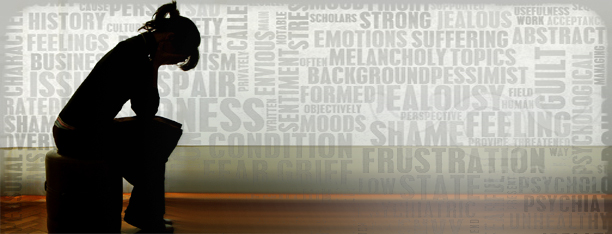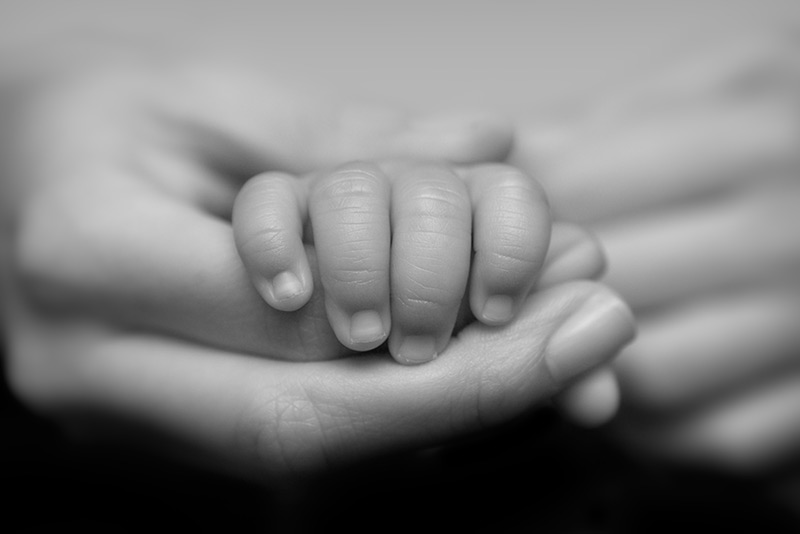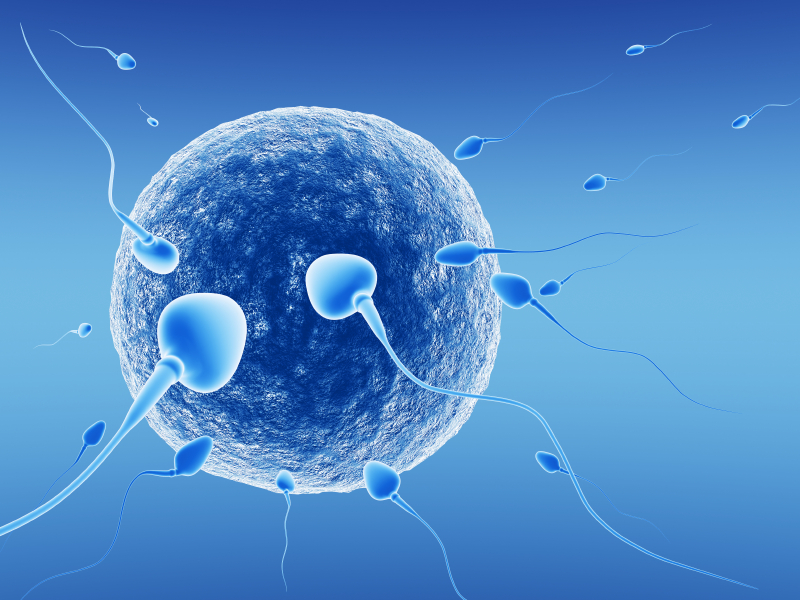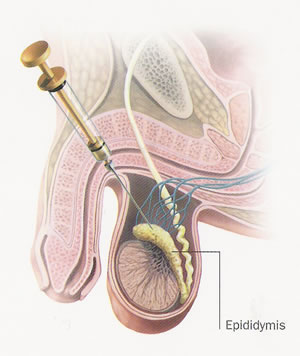I read this article recently on how infertility affects barren individuals and couples, and so much of what is discussed in it is so familiar to me, that it feels like someone was poking around in my head before they wrote it. As I read through it became apparent that while some of it resembled my life dealing with infertility, quite a significant portion was like reading variations of my own experiences. So I’ve contacted the publisher of this article (www.resolve.org) to request to use it in a post with personal annotations…
(Warning: this is quite long and would probably go down better with a glass of red!)
COPING WITH INFERTILITY: How Friends and Family Can Help
After a particularly difficult visit to her infertility clinic, Karen* came home angry. Discomforted and embarrassed by this latest test, Karen was still upset when her best friend telephoned. Wanting to help, the friend suggested that Karen just relax and quit trying so hard. “All you need,” she said, “is a vacation and a few sexy nightgowns.” Karen broke into tears and the friend wondered what she had said wrong.”
The emotional impact of infertility creates problems not only for the infertile couple, but also for their family and friends. Like Karen’s friend, many people want to be helpful and supportive, but don’t know how. Despite their best intentions and efforts, they often say or do the wrong thing, hurting the infertile person or getting hurt themselves. Growing numbers of parents, siblings, coworkers, and employers are encountering similar difficult situations—and they don’t know how to respond.
One of the main reasons that family and friends have trouble helping is that they know so little about the emotional aspects of infertility. From the shocking diagnosis and demanding treatment to the disruptive day-to-day experiences, this emotional assault can leave an infertile individual depressed, angry and guilt ridden. And family and friends often add to this pain by well-intended but uninformed comments and actions. Moreover, people can be hurtful if they are unsure of their own feelings, unable to deal with another person’s pain and mood swings, uncomfortable with the sexual connotations of infertility or unwilling to accept their method of coping.
By the time I found out I was infertile, we were way past attempting to conceive naturally. The fact that some people get pregnant through sexual intercourse has become such a foreign concept, that it still kinda eludes me to this day. Shocking diagnosis… not so much, I went from being an obstetrics patient, to being told I’d had a miscarriage, to being diagnosed with textbook PCOS, to ART (Assisted Reproductive Treatment) in the space of a 45min consultation – barely a moment to stop and think about the actually being infertile bit. But eventually… demanding treatments, disruptive experiences, depression, anger, guilt: check, check, check, check and check. I kept most of it to myself, but well meaning friends and family were often judgmental of our choice to pursue IVF, especially as a few month of treatment turned into several years…
The Profound Losses of Infertility
Needing help, many individuals and couples turn to support groups where they can express the hurt, anger and resentment they cannot or will not reveal to those closest to them. Secure among others who share the same pain, many support group participants voice their overwhelming sense of loss. Infertility counselors believe that if family and friends could understand the magnitude of this loss, they would have new insight into infertility patients’ motivation and behavior and be able to respond more appropriately to their needs.
“The loss I feel is more than not being able to conceive,” says one woman. “After months passed without a pregnancy, I went to my doctor and then a specialist. Slowly I entered a world of tests, medications and surgeries. Treatment seemed to take over our lives, and I began to lose the sense of who I was and where I belonged. I felt out of control, out of place and out of luck.”
This woman, who was becoming depressed, is actually describing several losses typical of infertility patients. Of the eight types of loss researchers have identified which can lead to depression in the average man or woman, the infertile individual may experience them all: loss of self esteem, status, important relationships, health or an acceptable body image, control, security, important fantasies and someone or something of symbolic value. The cumulative effect is profound, creating a life crisis that impacts a person’s ability to cope and has no immediate or foreseeable resolution.
My fertility treatments didn’t ‘seem to take over our lives’ – they did take over our lives. Everything in my schedule ended up revolving around appointments for scans, when I had to have injections, when surgeries were scheduled for, and the waiting game each month. Each failed cycle led to a sense of loss that was indescribable and inescapable. Even when talking with others who have experienced infertility of their own, no one’s journey is the same, and the sense of being alone, that no one understands how you feel is overwhelming. Being a frequent flyer at the IVF clinic has been the worst experience of my life, and it lasted for seven years…
Loss of Self-Esteem
Parenthood is so much a part of life that it is not just anticipated, it is expected. The inability to reach such a basic life goal comes as quite a shock, especially to those who are accustomed to orchestrating their lives injure their self-image and make them feel inadequate, like failures. “It’s so natural, why can’t I?” is often the anguished plea. To remain childfree may even threaten their sexual identities, since some men equate fatherhood with masculinity and some women consider childbearing the ultimate expression of femininity. As their self esteem is diminished, men and women often say they feel “incomplete” or “unworthy.”
After a decade on birth control, finding out I was infertile made me feel foolish and like I didn’t know myself at all. I rarely allowed myself any ‘why me?’ moments, it just didn’t seem productive to wallow in the unfairness of it all, and no one had an answer for me anyway! Unable to fulfil one of life’s basic biological imperatives made me feel like a absolute failure. As time went on, I started to feel ‘less’… less feminine, less of a woman, less human and less worthwhile as a person. I coined the term ‘femasculation’ to try and describe how I felt… It was like the very essence and purpose of why and what makes me female was unavailable to me because I couldn’t conceive a child and fulfil my preference to continue on the species.
Self-esteem also suffers with the surfacing of intensely negative feelings, and this is often an unwelcome surprise. Some women have great resentment toward pregnant women. Others can’t stand TV commercials with adoring moms and cute kids. Says one woman, “I’m surprised at my own feelings. I’ve discovered a negative and bitter part of myself that I don’t like.” Another woman who works in a hospital says, “Whenever I see one of those maternity blouses with big arrows pointing to the woman’s stomach, I get a stomach ache.”
I didn’t care much about women in TV commercials or movies, or pregnant women in the vicinity… the prams at the shopping centres however, with their precious little cargos made a lump form in my throat all the time, and I started to avoid them like the plague. They were a constant reminder of what I couldn’t achieve and I didn’t want to look at them. It was doubly difficult knowing that approx. 85% of those prams were filled by babies belonging to people who didn’t even have to try. Some of them might have come along ‘by accident’. By accident! The very concept represents the very antithesis of my entire understanding of getting pregnant!
One consequence of such damaged self-esteem is that people may turn their anger and resentment on friends or loved ones. Bewildered and embarrassed by their own words and actions, infertile women and men have difficulty integrating such raw emotion into their self images. “I feel like a bad person,” is a common admission. With their self-esteem so battered, people become unsure of themselves and may suddenly feel alone or out of place. “I keep trying to fit in, but everyone is having baby showers or doing things with their kids,” comments one discouraged patient. “I just don’t belong anymore.”
In turn, couples with children may exclude their childless friends. The infertile person feels further isolated and begins to avoid social gatherings where they feel awkward, different, or “unwanted.” The cycle then perpetuates itself.
Anger? Not so much; unless someone had the misfortune to offer unsolicited advice on how, when or why I should just stop IVF and accept my ‘situation’. The resentment though, OMG, the resentment not just towards myself and my situation but towards others.  While on IVF trying to conceive our second child, six of my friends fell pregnant (including my older sister who fell pregnant the very same month she stopped taking the pill), and I was happy for everyone of them… but when it came to pass that they were all starting to fall pregnant with their second children and I was still doing on IVF roller coaster three to four years later – I was literally incapable of feeling happy for them. I had nothing but bitter, bitter resentment at how easy it was… for all of them. I found I couldn’t find it in me to be happy for any of my friends who announced they were pregnant with their second children. And then, of course, I felt overwhelmingly guilty over not being happy for them. Eventually, I started to avoid those friends with their second babies, it was just another reminder of what a failure I was and the deep emotional scars and seemingly unending sadness that I was living with.
While on IVF trying to conceive our second child, six of my friends fell pregnant (including my older sister who fell pregnant the very same month she stopped taking the pill), and I was happy for everyone of them… but when it came to pass that they were all starting to fall pregnant with their second children and I was still doing on IVF roller coaster three to four years later – I was literally incapable of feeling happy for them. I had nothing but bitter, bitter resentment at how easy it was… for all of them. I found I couldn’t find it in me to be happy for any of my friends who announced they were pregnant with their second children. And then, of course, I felt overwhelmingly guilty over not being happy for them. Eventually, I started to avoid those friends with their second babies, it was just another reminder of what a failure I was and the deep emotional scars and seemingly unending sadness that I was living with.
Loss of Status
Because our society greatly values and encourages parenthood, infertile women and men may worry that they have lost status or prestige in the eyes of others. From the inevitable question, “Do you have children?” to messages at church to “multiply and replenish the earth,” childfree couples are duly reminded of society’s expectations. As one patient ruefully asks, “My church constantly reminds women of their special duty as mothers.
Does that mean they consider my worth to society is less because I am barren’?” Adds a teacher with many colleagues on maternity leave, “No one asks me about my work anymore. They only want to know when I’m going to start my family.” In addition, other people often make unfair judgments about the infertile couple. “Especially if you are active in a career,” says one childfree female attorney, “everyone thinks you have put your job before children. We can’t even buy a new car or a bigger house without appearing selfish and materialistic.”
I’ve never really considered children as part of my standing in our social group or the wider community. But having an only child has become a regular irritant once our son is started school. People would ask if I had other children, which unintentionally hurt me emotionally. Some reacted like I was selfish to only have one child – as though I’d found having one child too hard and wasn’t prepared to put in the work of building a ‘proper family’. If feels like there is an underlying judgment of my ‘choice’ to deprive him of siblings. Sometimes it was just a vague look, or a slight change in tone of voice… but I was so hypersensitive to it. When confronted by the ‘Oh you only have one child?’ or the ‘Are you planning any more?’ questions, I found myself replying to complete strangers with a curt, ‘My son was conceived on IVF and I am unable to have any more children.’, to shut down the conversation and avoid those slightly confused or judgmental looks. It’s weird that I’ve gotten to this point, because when I was on IVF I didn’t want even my closest people to know at all – I didn’t want them to feel sorry for me, I couldn’t handle their sympathy and pity. It was only after it had dragged on for years that I had to start speaking to more friends about what we were going through.
Loss of a Relationship
As partners attempt to cope with diagnosis and treatment, they may worry that their relationship will change. Sometimes the change can be great, and relationships are damaged or destroyed. A problem between partners may begin because both are hurting, stressed and depleted of physical and emotional energy. Less able to fulfill each other’s needs, they feel worlds apart. This is especially true if their ways of coping are different, as when one partner who prefers privacy feels embarrassed or abandoned by the other’s candor or desire to talk to others.
Relationships with family and friends can be strained if the couple believes they are not taken seriously or their decisions are not respected. This can happen even between infertile couples. “My friend and I commiserated with each other as we went through treatment,” says one woman, “but I finally had enough and wanted to get on with my life. We have adopted and are very happy, but my friend is appalled that I `gave up.’“
Another problem is that people need and expect a certain kind of support which others may not know how to give. Parent/child relationships especially suffer with the parent asking, “Why can’t I help my own child?” Moreover, other people often lose patience with the infertile person’s apparent “obsession” with getting pregnant.
I have an obsessive personality to start with, and there had never been anything that I couldn’t achieve once I put my mind to it. IVF was very humbling in this regard. It didn’t matter how much research, energy, time, effort, resources and money we threw at the problem, it refused to yield. I was obsessed with having another child – having an only child didn’t fit the picture of my future life that I had in my head (still doesn’t), and even thought I feel extraordinarily fortunate to have my son, I just wanted more. Unfortunately that feeling has never really gone away. The loss of not having the family I always wanted has stayed with me and some days the regret, grief and sense of loss (I’ve had five miscarriages in total) still feels like it is going to overwhelm me…
They have little idea how infertility impacts every aspect of a person’s life, forcing them into great soul-searching:
“What is wrong with me?”
(I knew what was wrong with me but knowledge didn’t fix it).
“Will my partner leave me?”
(He very nearly did, sometimes I think he still will).
“Am I becoming depressed and driving friends away?”
(Becoming depressed? Too late, many years of it. Yes, my misery drove people away).
“Is parenthood what I really want or just what I think I should want?”
(I always knew that I wanted children – plural).
“Why do I even have to question my motives?”
(My motives were unchangeable: have a family, a sibling for our son, bring more joy into our lives).
Too much of such introspection can create turmoil, make people defensive and moody and inhibit communication. Those couples who try to express their feelings find that the sexual connotations of infertility make it a difficult and awkward subject. The scheduled sex and treatment demands are intimate aspects which may be embarrassing both to the couple and to other people. If a couple talks frankly about their condition and treatment, they may put other people off. One mother recalls, “When my daughter told me how she carried her husband’s sperm sample to the doctor’s office, it was just too humiliating.”
On the other hand, very private people are likely to make others feel left out or rejected. The father of an infertile woman expresses his hurt, “I kept asking when she was going to give me a grandson. I would never have done that if she had just told me there was a problem.”
When I found out I was infertile after being referred to an OB/GYN as an obstetrics patient (I’d had a positive urine test, which curiously, was followed by a negative blood test – it turned out I had miscarried and a simple TV scan revealed I had textbook PCOS), my specialist jumped straight from ‘No, there’s no baby this time, but if you want one, this is what we have to do to get you pregnant.’. The result of this was that I didn’t really go home and dwell on being infertile. Oh, that phase came, just later. A big part of me didn’t want people to know that I was broken… well, even more broken than normal, considering a goodly part of my adult life had been effected by debilitating back pain already. We only told my direct family and a couple of very close friends. And, I didn’t tell them I was ‘infertile’… I think maybe somehow that label hadn’t really sunk in. Rather we told them but that we were going to need assisted reproductive technologies and/or in-vitro fertilization to try and get pregnant. Stupid as it sounds my eventual mother-in-law had told my husband, not long after we first met, that I wouldn’t be able to have children because of my bad back… I didn’t think much of it at the time, because it was a stupid thoughtless comment from a stupid thoughtless woman, but two years later when I did find out I was infertile, I didn’t want her knowing about it or being in any way involved in our problems. She was keen as mustard to be a grandmother and she would frequently ask us when we were going to have children. I didn’t want to deal with whatever response she may have had to my infertility. So I had no intention of sharing any information with her and so I let her continue to ask ‘when’. Sixteen years later, and she’s still a selfish thoughtless woman who has no understanding of what we struggled with, nor do I think she would have had any genuine empathy for us if I had attempted to fully acquaint her with what we went through – some people just aren’t capable of it. Strangest bit is, even six years after I was forced to give up IVF; if someone asks me now if I’m going to have any more children, it takes all the composure I can muster not to burst into tears. The pain, hurt and failure of infertility just doesn’t seem to go away. Ever…
Loss of Health or an Acceptable Body-Image
Whatever the cause of a person’s infertility, he or she may feel unacceptable, damaged or defective. One woman who has ended treatment remembers how “all the medications and surgeries made me think of myself as a ‘sick’ person. When the doctor could not make me ‘well’ and nothing seemed to be working, those feelings of being unhealthy or ill were intensified.” The patient may feel like a “specimen under glass.” And there may be an actual change in health. Both women and men can become tired, listless and ambivalent about previously important activities. Stress can trigger headaches and irritability; medications may cause such side effects as cramping, bloating and nausea; surgery patients require a recovery period from the procedure and anesthesia.
Unfortunately in my case, by the time I found myself on IVF I already had long standing battle lines drawn with my traitorous body, thanks to three car accidents in my early 20s that left me with a residual spinal incapacity and chronic pain. Infertility severely exacerbated my already pervasive and frequent negative body thoughts. I hadn’t thought of myself as ‘strong and healthy’ since I was in my late teens; as such the infertility, IVF, medications, procedures and treatments didn’t make me feel like a ‘sick’ person, because I already thought of myself and my body as uncooperative, useless and broken. The frequent surgeries were just more trials I had to face and recover from, the side effects from the drugs were yet another hideous inconvenience in a life already full of medications and limitations. They say ‘that which doesn’t break us makes us stronger’… this is complete and utter bullshit. That which doesn’t break us makes us build a better façade. Inside we are all still falling apart quietly.
Perhaps the most troubling change in self or body image is the way a person sees himself/herself sexually. The medical evaluation probes a couple’s sex life, violates their privacy, and eliminates sexual spontaneity. The course of treatment may require scheduled sex, so sex becomes divided into “sex for pleasure” and “sex for baby/doctor.” Many couples notice significant changes in their sexual relationships, especially if sex becomes only a means to achieve pregnancy. Either partner may feel “used,” particularly if one is relentless about the timing and mechanics of their most intimate moments.
Some men respond to such command performances with resentment, anger and even impotence; some women cannot reach orgasm. To cope with the pressure, the partner who feels intruded upon may not cooperate fully, either physically or emotionally.
What sex life?!? While on IVF, I was either pre-op or post-op for literally years. If I wasn’t, I was heading in for scans a few times a week, or I was self-injecting every day FSH (Follicle Stimulating Hormone better known as: ‘Flowers? Champagne? Diamonds? Tickets To Tahiti? Get Your Fucking Filthy Boots Off My Carpet’ drugs… mood swings ahoy!). If I wasn’t on those, I was on post-op progesterone support twice a day (delivered via vaginal pessaries… so not sexy, just eww!). I had so many egg collection procedures where I would have between 12-19 eggs collected, and then be told not to have intercourse in case they had missed some (which could be disastrous given they usually transferred back 2-3 embryos shortly after – and a multiple pregnancy with my back was not a risk we wanted to contemplate). On top of feeling like being hit by a truck half the time and being full of hormones, sex became something that ‘other people’ did to have get pregnant – something I certainly don’t associate with conception anymore. Feelings of complete utter inadequacy heightened an already battered and downtrodden sense of self worth… my lost perception of myself as a living breathing, desiring and desirable sexual person, was just another innocent bystander in an IVF drive by.
Loss of Control
Infertility patients in treatment have lost control over much of their lifestyle, as doctors’ appointments, temperature charts, medication schedules, medical procedures and programmed sexual relationships overwhelm their normal routine. Comments one businessman, “There are so many ethical and practical decisions to make, but I feel like my life isn’t my own. Even my sex life is decided by someone else.”
As the patient’s priorities shift, other people and regular activities take a back seat to the all-consuming job of getting pregnant. Career and vacation plans are thrown into chaos. Faced with constant decisions which they often feel powerless or inadequate to make, patients worry, “If I go back to work, will it interfere with my treatment? Should I change doctors, take this new medication or have another surgery? Will I be infertile forever? If I stop, will I always regret it?” As one patient notes, “It’s like being lost in a maze and always trying to find the way out.”
Holidays? Who had time for that? Even if we could have afforded one in among the mounting medical bills. With drugs every day, scans every week, procedures every month, cycles year in and year out; a holiday was the last thing on our agenda. Giving up has never been an option for me – not in this, not in anything that really mattered. My father didn’t raise a quitter. I couldn’t face the prospect of putting an end date on the IVF, a limit to the number of cycles we’d go through no matter how hard my husband tried to get me to consider giving it away. The idea that it would work eventually became an all consuming focus. In the beginning it felt like we were going through a trial and error process, but by the end of it, my IVF specialist was telling me that I was keeping him awake at night… he just didn’t know why thing the embryos wouldn’t take. Trust me, you really don’t want the distinction of being your infertility specialist’s most worrying patient. Even when everything looked perfect, we had failure after failure. And yet I dug my heels in and resisted giving up IVF. Giving up treatments meant giving up my dream family. As the years went by it felt like my was a miraculous accident, I probably wasn’t supposed to have children at all. We tried everything, every new technology that came through, but ultimately the whole thing felt like gambling… turn up, take the drugs, follow instructions, go through the procedures, pay your money, go home, roll the dice and wait. And I am not a gambler. Was my life out of my control? Totally. And that feels like the understatement of the century.
Even medical professionals do not always agree about the proper course of treatment. Lack of definitive medical answers and uncertainty about treatment decisions accentuate feelings of powerlessness.
Of particular concern to most infertile women and men is the loss of their privacy. Many complain that the clinical aspects of treatment are dehumanizing. One man was furious when he got to the lab to give a sperm sample and was directed to a bathroom with a large sign on the door reading “Sperm Count in Progress.” Another patient who finally got pregnant after years of trying miscarried in her third month. When she went to her doctor to learn the lab results, the nurse appeared in the doorway of the waiting room and called to her across the room full of pregnant women, “Oh, Mrs….?, it was just a bad egg. Go home and try again.”
Certain necessary tests seem especially intrusive. A postcoital check, for example, determines the presence, number, and motility of sperm moving up the vagina. It requires the couple to schedule intercourse so that the woman can be examined approximately one hour later at the doctor’s office. One woman describes how unsettling this can be: “My doctor did these checks on Saturday mornings. I hurried to his office and entered the waiting room where five other women turned towards me. I felt undressed. There we were, strangers, knowing we just had had sex with our husbands.”
Hang the loss of privacy and seriously, modesty be damned. These things were incidental to the process and unimportant in the big scheme of things… to me anyhow, though I knew others who felt these physical intrusions and bodily invasions were horrifyingly embarrassing. To me, the medical procedures reinforced a mindset of how ‘animal’ we are… and how hard we, as humans, try to ignore, sterilize or sanitize our ‘animalness’. Any sense of my body being a private space, was completely defenestrated by about the second time I found myself in an operating room with half a dozen people milling around while I was having an embryo transfer. The loss of privacy and the embarrassing procedures were just part of the gig, and didn’t matter to me because I was so goal oriented – I didn’t like it, but it’s not like any of it was optional. My feelings of powerlessness and constant failure were far more pervasive, worrisome and overwhelming than any concerns over my privacy.
Loss of Security
On many levels, infertility can undermine a sense of security. Occupational security is affected as patients try to fit their work into their treatment schedules. Some people avoid changes at work which would prevent time off for treatment. One woman who has turned down two transfers with her company to stay with her doctor worries about the consequences of turning down another.
On the other hand, some patients are forced to uproot and move if they want a particular doctor or to a reputable infertility program. The financial burden can be staggering, and doctors’ visits, routine lab work, tests, surgeries and medications are only part of the story. Time away from work, parking, gasoline and other “hidden” costs quickly add up. Some people also spend enormous amounts on travel to centers that specialize in certain procedures such as in vitro fertilization (IVF). Medication for IVF is approximately $3,000-$5,000 per cycle on average; the average cost of an IVF cycle (in addition to medications) is $8,200—the costs can be prohibitive. Some people even choose jobs because of good medical benefits.
The money! Oh my God the money – I can see my former self dejectedly holding my head in my hands as I think that. As if the emotional cost of infertility and IVF treatments weren’t bad enough, the constant worry of how to pay for it all nearly sent me around the bend, and us bankrupt. And all the while, the spectre of having to give up due to lack of funds hung over me like a dark cloud. We were so overextended at times it was like trying to make our monthly mortgage payment each week. I would pay for the drugs upfront, because I couldn’t do a cycle without them, I would pay off our treatment bills in drips and drabs across the course of the ‘wait and see period’ each cycle. I was juggling dollars around like a crooked accountant, taking money from our utility bills account to pay for medical bills, using our credit card like there was no tomorrow, refinancing our home loan (twice) so I wouldn’t have to give up… and keeping half of the money worry to myself so my pragmatic husband wouldn’t know how bad it was. I wanted to conceive and while I worried like nobody’s business, I didn’t care about the financial repercussions. I kept telling myself it had to work eventually and put my faith in the fact that my IVF specialist kept telling me the same thing. I remember my mother coming over one day unexpectedly, and finding me in tears on the phone with the power company trying to convince them not to cut off the electricity because I was way behind on our bill. My Mum, took the phone off me, promptly gave them her credit card details to square away my power bill (a measly $300 odd dollars) and made me tell her what was going on. I was distraught and messy and didn’t want to ask for anyone’s help but I told her how bad things had gotten financially. A week later my parents gave me their holiday savings of $10,000 to try and help us get on top of the mess I’d made. It helped for a little while, but before too long I found myself straight back down the IVF Debt rabbit hole anyway.
Finally, infertility challenges one’s views of the world, making them insecure about the present and the future. The “life isn’t fair” axiom has real meaning for infertility patients, especially in the face of unwanted teenage pregnancies, abortions and increased child abuse. Infertile women and men can become anxious that “if this can happen, anything can.” Accompanying this insecurity is a belief that they may have caused their own infertility. “I tortured myself with thoughts that God was punishing me, that I had failed to take care of my body, or that I had waited too long,” says a woman in her late 30’s. Such feelings of guilt shake the confidence of many innocent people.
If IVF taught me anything, it is that Life isn’t fair. Period. I honestly don’t understand people who think it should be. I was only 28 when I found out I couldn’t get pregnant unassisted. I didn’t think I left it too long, I didn’t think I was being punished. I didn’t think that I didn’t deserve children. All around us we would see parents who were ambivalent or dismissive towards their small children; we would read in the papers about parents who had abused, tortured or even killed their infants and children; my husband would deal with people at work who were drug addicts or alcoholics who regularly neglected their children. Now this got to us both, a lot. How come these people could have children and we couldn’t? If Life was fair, surely these people would be the ones dealing with infertility. If Life was fair, surely those with a propensity for violence or drug addiction wouldn’t be able to breed and there would be no child abuse, ever. If Life was fair, then surely no genuine, sincere and loving people who wanted a family would end up suffering from infertility. But Life is not fair. It’s an axiom that I’m trying hard not to let this mindset rule my entire life, but it kinda does. I am way too cynical for my own good – about everything and everyone.
Loss of an Important Fantasy
Most people fantasize about and eagerly anticipate all that accompanies parenthood—personally, socially and religiously. There are those who even consider having a child a unique rite of passage into adulthood, tantamount to growing up; being a parent is part of their idealized self. The inability to turn this fantasy into reality is a powerful blow. One man likened the experience to being suited up but sidelined at every game. He adds, “I’m tired of being only an uncle or the nice neighbor next door. I want to be someone’s dad, to take my own kids trick-or-treating or to go to a father/son outing.” His wife reveals her fantasy by joking, “You mean, a father/daughter outing.”
I personally wouldn’t call it a fantasy, but it is the loss of a lifelong expectation. We grow up thinking ‘One day I’ll find someone special and have a family’; no where in our education or upbringing do we get encouraged to think that ‘One day I’ll meet someone special and we will desperately want to have a family and won’t be able to’. Most of us that want children, expect we will be able to achieve exactly that as soon as the time is right for us. People without known pre-existing conditions don’t set out to have a baby and anticipate that it might not work as easily as it appears to for everyone else. By the time I had spent 12 months on IVF, I knew more about reproduction and conception than I ever wanted to know, and by the end of my ‘education’ I am amazed that anyone falls pregnant naturally – it’s a precarious process, even in healthy individuals, that involves more good luck, than good management. But whether you want to call it an expectation or a fantasy or a dream, the blow and the huge sense of loss feels like being kicked in the stomach when you find out that your very reasonable expectations are not going to be met. The picture you have in your head of the life you always wanted, the fantasy, is going to remain just that…
Loss of Someone or Something of Symbolic Value
Infertile couples may feel they have lost a child, whether they have never conceived or they have conceived but could not carry the baby to term. The paradox is that they mourn this child that never was and still yearn for him to be. “Each month when I realize that I am going to have a menstrual period, it is like a death because it means there is no life, no baby to come,” says one woman. The sense of loss is punctuated because there is no funeral, no sense of finality. And without a clearly defined loss for family and friends to see, it is difficult for them to truly empathize; some even dismiss the deep grief as simple self-pity. “Our hearts are broken,” responds one couple. “We don’t want people to feel sorry for us; we just want them to understand that we are hurting.”
A child is also a symbol of new life and the continuation of life. A man who grew up in a large family says, “I miss a relationship with a child, the opportunity for us to grow together and affect each other’s lives.”
I have been extremely fortunate to have my son (this statement feels very much like the words are too little and insignificant to express how incredibly lucky I feel to have him), who was conceived on IVF after about a year of treatments. But my trials with infertility have left huge emotional scars that don’t seem to have ever healed. I have had several miscarriages and more failed IVF treatments than I can count – so many microscopic little embryos (potential little children) were transferred back into my body, only my horrible, useless, traitorous body failed to embrace and nurture them. Each month of failure caused its own grief, while at the same time as soon as that cycle started, a few days in and I was back on the medication to try again. It felt like it was never ending, the drugs, the procedures, the waiting and the seemingly inevitable failure. So, no. While I was going through it, I didn’t really take the time to grieve. The longer we kept trying, and the longer the history of failure behind me, I eventually began to feel numb. Numb to the loss, numb to the process, numb to everything. I know it was a strange sort of coping mechanism (and probably not a very good one) that was allowing me to keep going, and remain focused on my goal – to have another child and a sibling for our son. Eventually though, once I was forced to stop. The numbness went away and the full force of what was lost, the enormity of my failures, weighed down so heavily on me, that for years I felt like I couldn’t breathe. Even now when I think about how much I went through and the incredible impact it had on every aspect of our lives, I am filled with a indescribable sadness that doesn’t ever seem to go away… and I really wish it would.
by Patricia Payne Mahlstedt, EdD
(personal annotations by borysSNORC)
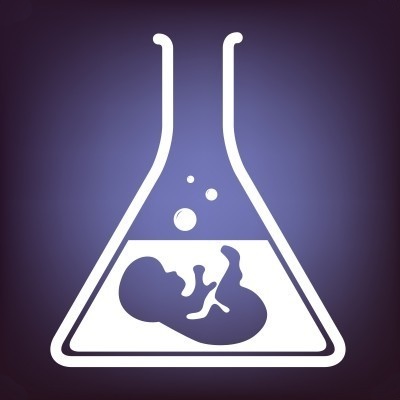



 While on IVF trying to conceive our second child, six of my friends fell pregnant (including my older sister who fell pregnant the very same month she stopped taking the pill), and I was happy for everyone of them… but when it came to pass that they were all starting to fall pregnant with their second children and I was still doing on IVF roller coaster three to four years later – I was literally incapable of feeling happy for them. I had nothing but bitter, bitter resentment at how easy it was… for all of them. I found I couldn’t find it in me to be happy for any of my friends who announced they were pregnant with their second children. And then, of course, I felt overwhelmingly guilty over not being happy for them. Eventually, I started to avoid those friends with their second babies, it was just another reminder of what a failure I was and the deep emotional scars and seemingly unending sadness that I was living with.
While on IVF trying to conceive our second child, six of my friends fell pregnant (including my older sister who fell pregnant the very same month she stopped taking the pill), and I was happy for everyone of them… but when it came to pass that they were all starting to fall pregnant with their second children and I was still doing on IVF roller coaster three to four years later – I was literally incapable of feeling happy for them. I had nothing but bitter, bitter resentment at how easy it was… for all of them. I found I couldn’t find it in me to be happy for any of my friends who announced they were pregnant with their second children. And then, of course, I felt overwhelmingly guilty over not being happy for them. Eventually, I started to avoid those friends with their second babies, it was just another reminder of what a failure I was and the deep emotional scars and seemingly unending sadness that I was living with.
